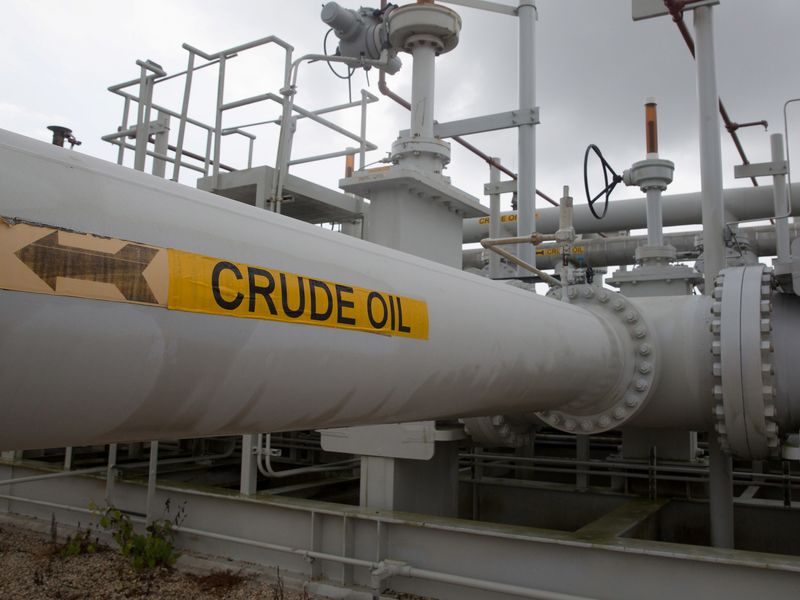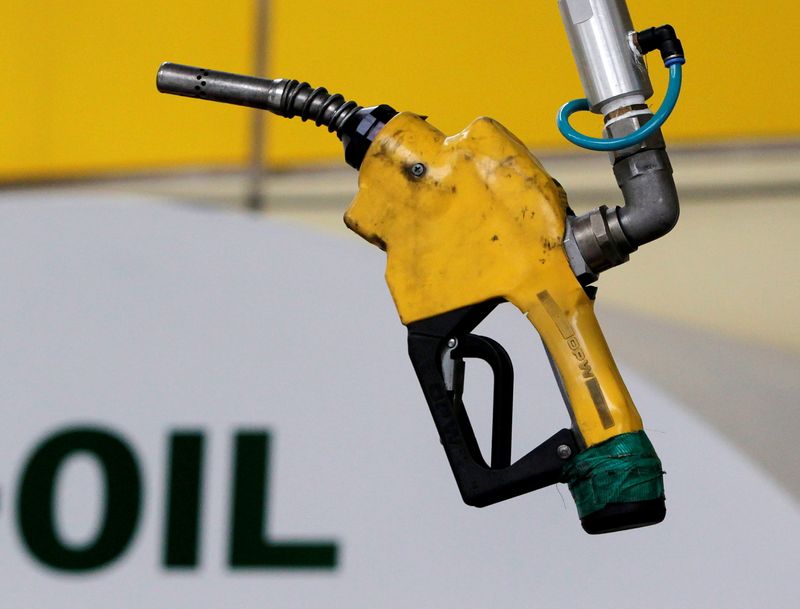By Laura Sanicola
NEW YORK (Reuters) -Oil prices fell about 1% lower on Friday, posting to their steepest weekly losses in months, on worries that travel restrictions to curb the spread of the Delta variant of COVID-19 will derail the global recovery in energy demand.
Crude futures also came under pressure as the dollar strengthened after monthly U.S. job growth came in higher than expected. A stronger dollar makes greenback-denominated oil more expensive for buyers in other currencies.
Brent crude oil futures settled down 59 cents, or 0.8%, at $70.70, while U.S. West Texas Intermediate (WTI) crude futures fell 81, or 1.2%, to settle at $68.28 a barrel.
For the week, global benchmark Brent shed more than 6%, its largest week of losses in four months, and WTI tumbled nearly 7% in its biggest weekly decline in nine months.
"The price action we see now is really a function of the macro picture," said Howie Lee, an economist at Singapore bank OCBC. "The Delta variant is now really starting to hit home and you see risk aversion in many markets, not just oil."
U.S. President Joe Biden said that COVID-19 cases in the United States, which have climbed to a six-month high, will go up before they come down and that the new Delta variant is taking a needless toll on the country.
Japan is poised to expand emergency restrictions to more regions of the country, while China, the world's second-largest oil consumer, has imposed curbs in some cities and canceled flights.

"Increased travel restrictions in China have come under the microscope of traders and could become a key oil price mover as this month proceeds," said Jim Ritterbusch, president of Ritterbusch and Associates LLC in Galena, Illinois.
U.S. oil rigs rose two to 387 this week, energy services firm Baker Hughes Co said. Growth in the rig count has slowed in recent months as drillers continue to focus on capital discipline.
(Additional reporting from Noah Browning Dmitry ZhdannikovEditing by Marguerita Choy and David Gregorio)
